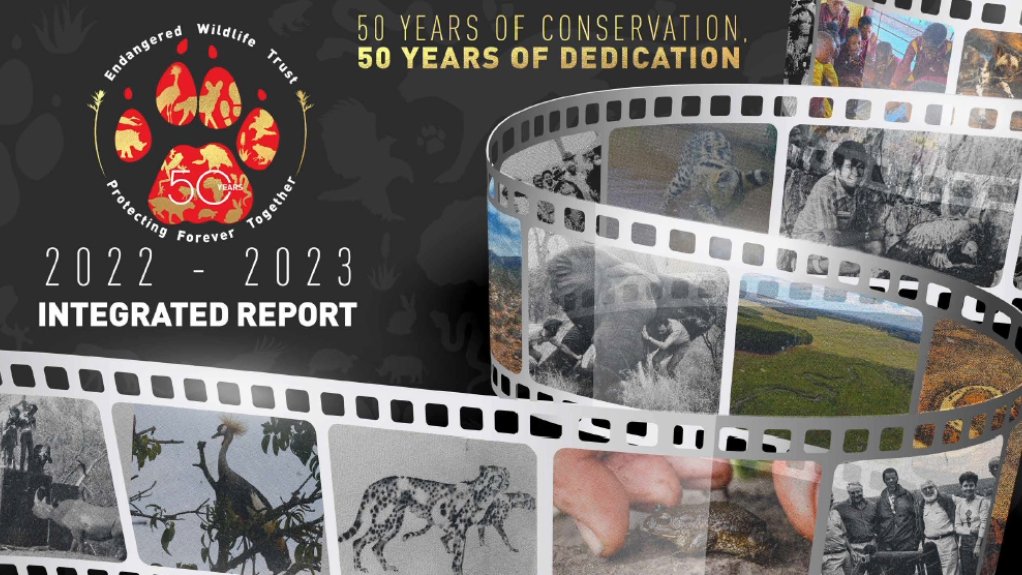- Endangered Wildlife Trust Integrated Report 2022/202326.73 MB
The 2023 edition of the EWT's Integrated Report showcases numerous examples of our successful conservation efforts, from saving species on the brink of extinction to increasing populations of cheetahs, cranes, and Wild Dogs in South Africa. You'll see our robust framework for measuring impact and our use of innovation to generate better results. We're proud of our growth in budget and funding spent on projects. In a year marked by global turmoil, we celebrate our achievements in safeguarding the planet for future generations. Here's a sneak peek of what you'll find in this year's report:
The EWT has 50 years of conservation experience and is now working on a new strategy aligned with global targets. Our Conservation Strategy for 2023-2030 focuses on Saving Species, Conserving Habitats, and Benefitting People by prioritizing species conservation, preserving habitats, and promoting biodiversity-friendly livelihoods.
Our conservation work has national and global impact and contributes to various frameworks such as South Africa's National Biodiversity Strategy and Action Plan. We also play a critical role in IUCN's Commissions, working towards achieving the Kunming-Montreal Global Biodiversity Framework targets. Additionally, our achievements have contributed to the IUCN Red List of Threatened Species.
The EWT has been in partnership with the International Crane Foundation (ICF) for 30 years in Africa, and coincidentally, both organizations are celebrating their 50th anniversaries this year. The partnership's goal is to secure and improve the conservation status of Africa's four resident crane species by reducing threats to the wetland and grassland habitats they depend on. We work closely with local communities and key national and global stakeholders to implement targeted conservation actions. We support individuals, community groups, and organizations that manage catchments better to benefit both people and cranes. We integrate conservation into local decision-making and practices for sustainable species and habitat conservation gains. Our program operates in the Western Cape, Eastern Cape, KwaZulu-Natal, Free State, and Mpumalanga in South Africa. We oversee projects in Kenya, Rwanda, Uganda, and Zambia in the rest of Africa and support work in Ethiopia, Senegal, and South Sudan.
We built EWT's first vulture ambulance with donor support and stationed it in the high-risk Greater Kruger region. The mobile unit rescues vultures at poisoning scenes, treats up to 20 birds at a time, and includes medical supplies for first aid. The ambulance has already saved over 30 vultures at two poisoning events.
Our challenge as humankind is how we, in a rapidly evolving modern and diverse global society, agree on the economic and political strategies, which incorporate the now starkly obvious environmental realities into a universally accepted plan of action for the conservation of our physical world. The plan must incorporate governance standards to make best use of our scientific and operational capabilities to achieve conservation excellence, including strong and effective sanctions for individual corporations and countries who fail to meet these standards.
Report by the Endangered Wildlife Trust
EMAIL THIS ARTICLE SAVE THIS ARTICLE ARTICLE ENQUIRY
To subscribe email subscriptions@creamermedia.co.za or click here
To advertise email advertising@creamermedia.co.za or click here











